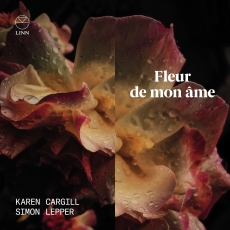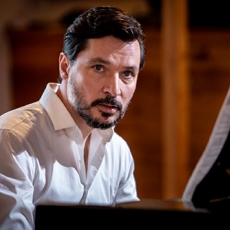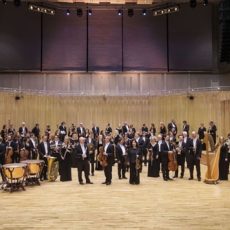Karen Cargill - Fleur de mon âme - MusicWeb International
I have loved Karen Cargill’s smoky mezzo-soprano from the very first time I heard it and I knew from her previous performances and recordings of French music, such as Berlioz’ Nuits d’été and L’enfance du Christ, that she excelled in this genre, so I had decided, most unprofessionally and ill-advisedly, that I was going to love this new recital even before I had played it. I was not disappointed; this anthology of mélodies from four of the greatest French song-writers plus the bonus rarity of a song by the Belgian composer Joseph Jongen seems to me like the culmination of her art. The first time I listened to this recording, the moment I had finished it, I replayed it, such is its seductive allure.
Sensitively accompanied by her regular pianist partner, Simon Lepper, Ms Cargill presents us with the music-loving Francophile’s ideal: eighteen of the loveliest Romantic and Symbolist love songs, replete, as Helen Abbott’s excellent notes remind us, with typically French imagery and allusions to “flowers, birds and water”. These are the most elegant, suave and diaphanous of songs, often requiring Cargill to tone down her big voice to a sultry, languorous whisper, so the contrast between her habitual restraint and when both she and the piano open up for the erotic climaxes of Debussy’s La chevelure (Tresses) on “la bouche sur la bouche” (mouth on mouth) is all the more striking.
The album opens with the archaic pastiche À Chloris -surely one of Reynaldo Hahn’s most enduring tunes – and the tone is set by the combination of Cargill’s restraint and poise with the airiness of Lepper’s playing. As the songs progress, Cargill only very rarely reminds us that hers is a voice which can encompass the demands of Wagnerian roles such as Waltraute, so completely has she adapted to the gossamer delicacy of the genre.
The “novelty item” here is the song by Joseph Jongen, positioned centrally in the programme and indistinguishable in mood and character from the more famous mélodies embracing it – though I have to say that its text, a poem by Albert Victor Samain, cannot escape the accusation that it evinces a degree of pretentious, self-conscious striving for novelty which inevitably sounds more so in translation with such lines as “the effeminate hands of blue dusk/Extinguish the burning river of oozing metal” …
The programme is artfully balanced, so we have “light relief” from the intensity of a succession of tragic love stories in several of Chausson’s songs such as Le charme, Le colibri (The Hummingbird) and Les papillons (Butterflies).
I am used to hearing the Duparc songs in their orchestrated form but listening to them performed in their more intimate, piano-accompaniment form also pays dividends, especially when Simon Lepper provides such limpid, bell-like tone to complement Cargill’s honied timbre. His pianism is delightfully subtle, fluid and constantly felicitous, as per his rippling accompaniment in Chausson’s Sérénade italienne. Ending with the sensual indulgence of Duparc’s Phidylé makes a highly satisfying conclusion to this traversal of voluptuary music; in the last stanza Cargill is once again able to let her grand voice ring out in celebration of the joys of deferred pleasure.
Ms Cargill has clearly worked hard on her French diction and pronunciation with wholly successful results. The recorded sound is flawless, offering a perfect balance between the voice and the piano – or, in the case of both the Jongen song and Chausson’s Chanson perpétuelle, the piano and the excellent string quartet of soloists from the Royal Scottish National Orchestra.
The neat cardboard digipack is slim and attractive and - joy of joys – French texts and English translations are provided in the booklet. The only objection I can imagine relates to the relative brevity of the programme - exactly an hour – but with artistry of this quality such a complaint would surely be churlish.



